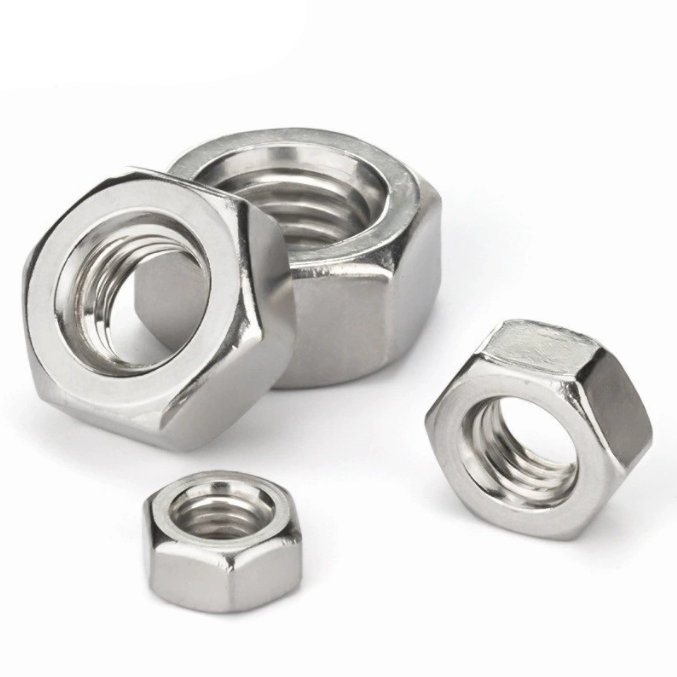

Hexagon Machine Screw Nut and Its Applications in Various Industries
Dec . 11, 2024 15:26 Back to list
Hexagon Machine Screw Nut and Its Applications in Various Industries
Understanding Hex Machine Screws and Nuts An Essential Guide
In the realm of mechanical engineering, construction, and automotive industries, fasteners play a pivotal role in ensuring the integrity and stability of structures and devices. Among the various types of fasteners available, hex machine screws and nuts are fundamental components that are used extensively. This article delves into the unique characteristics, uses, and advantages of hex machine screws and nuts, highlighting their importance in various applications.
What are Hex Machine Screws?
Hex machine screws are a type of fastener characterized by their hexagonal head, which allows for easy engagement with a wrench or a socket. They are typically fully threaded and made from materials such as steel, stainless steel, or brass, ensuring robustness and durability. These screws are designed for use in a variety of applications, frequently in machines, structures, and assemblies requiring a secure fit.
The hexagonal shape of the head provides excellent torque transmission, minimizing the risk of stripping when tightened. Machine screws are often used to fasten metal parts together but can also be employed in plastic or wood materials that require sturdy fastening. The combination of strength and versatility makes hex machine screws a popular choice among engineers and builders.
What are Hex Nuts?
Hex nuts are the counterpart to hex machine screws, designed to be used in conjunction with them. These nuts have a hexagonal shape that allows for efficient connection and tightening with a wrench. Normally made from the same materials as screws, hex nuts also come in various grades and finishes, contributing to their strength and resistance to corrosion.
Just like the machine screws, hex nuts are available in different sizes, types (such as regular, locking, or wing nuts), and thread pitches, ensuring compatibility with various applications. Their primary function is to secure machine screws by providing a tight fit, preventing loosening due to vibration or stress.
hex machine screw nut

Applications of Hex Machine Screws and Nuts
The applications of hex machine screws and nuts are vast and varied. They are commonly found in automotive assemblies, where they are employed to secure engine components, suspension systems, and body panels. In the construction industry, these fasteners hold together structural elements, ensuring the integrity of buildings and bridges.
In manufacturing, they are crucial for assembling machinery and equipment. Appliances, furniture, and electronic devices also utilize hex machine screws and nuts for their ease of use and reliability. Because of their ability to withstand harsh environments, they are particularly important in aerospace and maritime applications.
Advantages of Hex Machine Screws and Nuts
One of the key advantages of using hex machine screws and nuts is their strength and reliability. The hexagonal shape not only allows for easy tightening but also provides a secure clasp, reducing the likelihood of loosening. This is particularly beneficial in high-vibration environments.
Moreover, their versatility shines through in their extensive range of materials and finishes. Depending on the specific requirements of a project, users can select fasteners that are resistant to corrosion, heat, or chemical exposure. This adaptability leads to longer-lasting joints and reduces maintenance costs over time.
Conclusion
In summary, hex machine screws and nuts are indispensable components in a multitude of industries. Their robust construction, ease of use, and ability to create secure, reliable connections make them a preferred choice for engineers and builders alike. Their widespread applications, coupled with their diverse materials and configurations, underscore the critical role they play in modern manufacturing and construction. Understanding these fasteners' functions and advantages helps in selecting the right components for any project, ensuring safety, efficiency, and durability.
Latest news
-
High-Strength Hot Dip Galvanized Bolts - Hebei Longze | Corrosion Resistance, Customization
NewsJul.30,2025
-
Hot Dip Galvanized Bolts-Hebei Longze|Corrosion Resistance&High Strength
NewsJul.30,2025
-
High-Strength Hot-Dip Galvanized Bolts-Hebei Longze|Corrosion Resistance&High Strength
NewsJul.30,2025
-
Hot Dip Galvanized Bolts-Hebei Longze|Corrosion Resistance&High Strength
NewsJul.30,2025
-
Hot Dip Galvanized Bolts - Hebei Longze | Corrosion Resistance, High Strength
NewsJul.30,2025
-
High-Strength Hot Dip Galvanized Bolts-Hebei Longze|Corrosion Resistance, Grade 8.8
NewsJul.30,2025

